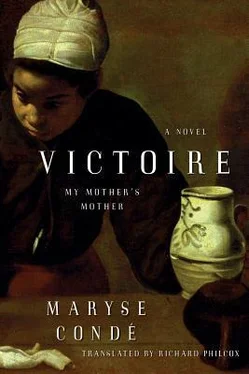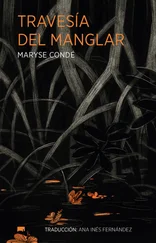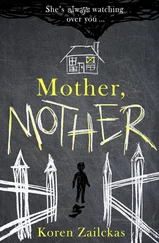Maryse Conde
Victoire: My Mother's Mother

In the hamlet of La Treille on the island of Marie-Galante, not far from the town of Grand Bourg, the name of Quidal is as common as grains of sand on the beach. This is their domain. Rumor has it that they are descendants of the property belonging to Master Antoine de Gehan-Quidal, owner of a sugar plantation. Ruined after the abolition of slavery, he returned to France and left behind a hundred or so “new citizens” in his slave cabins. The branch I come from had nothing to distinguish it from the others. Just as black. Just as famished. My great-grandparents were a strange bunch. Oraison, the third son of Dominus, who, like his father and grandfather before him, cast and hauled up his fishing nets deep in the ocean, had married, or rather lived with, his cousin Caldonia Jovial. They had engendered a dozen children, five of whom still remained on this earth. Their cabin was no different from the others. Built of pine-wood and protected by sheets of zinc siding. No veranda. No cement floor. Cooking and washing was done in the yard where a group of male papaya trees grew. Oraison, a petroleum blue Negro, as long as a day without bread, had a stock of tales that any qualified research specialist would describe as “erotic.” Fish were compared to the male member, thick and sticky; seawater to the liquid that soaks women down there. He also sang in a pleasant high-pitched voice. Although he was no professional, his singing talents were often called upon at wake ceremonies. As for Caldonia, she interpreted dreams. People came from far and wide to unlock their dreams.
“Caldonia? Ka sa yé sa? ”
And she would coast confidently from one answer to the next: “Fish means mortality. A lost tooth, death. Pregnancy, good luck. A wound, bad luck. Blood on yourself, grief. Blood on others, victory.”
One night, a dream bid her to take a closer look at the belly of her eldest daughter. Eliette, who was not yet fourteen, was pregnant. But Caldonia was quite pleased. Girls are meant to give birth. Better earlier than later. Eliette, however, made a great secret of it. She refused to reveal the name of her accomplice, so resolutely that Oraison ended up whipping her with his leather belt. She bore the lashes like a martyr, but still didn’t open her mouth and kept mum. Her brothers and sisters described her sobbing at night and how at eleven o’clock every morning she would run to waylay the postman. Was she hoping for a letter, she who couldn’t even read?
On Sunday, August 15, Caldonia was slipping on her best dress to attend mass when Elie came to warn her that his twin sister had lost her waters. The birth was not looking good. Her pelvis was too narrow. Seeing Eliette’s blood gradually seep over the straw mattress, Martha Quidal, the midwife, had no choice but to send for Father Lebris, who at one thirty in the afternoon recited the prayer for the dead.
More than the sudden death of Eliette was the appearance of the newborn that shocked the family. A full head of thick black silky hair. Eyes the color of clear water. A skin tinted pink. For heaven’s sake! Where did Eliette cross paths with a white man? There were no whites in La Treille. The only exceptions were the pallid priests barricaded against malaria, locked in their presbyteries. As for the plantation owners, most of them had deserted the sugar plantations for lack of profit. At one point there had been the soldiers of the fourth regiment garrisoned at Grand Bourg. Once they had experienced marching under the tropical sun, one-two, one-two, with knapsacks on their backs, they had gone back to France. Perhaps these were the ones who had wreaked havoc among the fair sex in their youthful ardor. Was that where we should be looking for the father?
For the time being, indifferent to these conjectures of the baby’s paternity, all Oraison could think of was how they were going to get rid of this fateful object. The pond close to the rum factory or the cliff known as devil’s leap? The latter was the perfect setting for creatures of this type. But the child raised its eyelids and stared at Caldonia. The science of motherhood had not yet been invented, but never mind, Caldonia was deeply moved by this silent exchange. Everything was decided in that one brief instant. A bond was tied that was only to become undone fourteen years later when Caldonia died from having eaten a banana in the heat of the midday sun. The little girl stole the heart of her grandmother, who had seldom experienced such feelings. Caldonia was God-fearing, but her soul did not exactly pine for Him. Her husband irritated her. Her children left her indifferent. From one day to the next, all that changed. She became devoted, possessive, demanding, and anxious. No egg was fresh enough, no breast of chicken white enough, and no flour light enough for the baby’s stomach. To prevent diarrhea she mixed the baby’s cereal with Hépar spring water. Quite unheard of! In a place like La Treille, where the children ran naked, with swollen bellies, reddish hair, and two slimes of mucus oozing out of their nostrils, this type of love seemed incredible. You had to respect it, though. They are still talking about it today.
The choice of first names was Father Lebris’ decision. Victoire! Because in fact her birth was a victory. Poor Eliette had gone to join the dwelling place of the dead before she had lived her life, whereas her daughter testified to the glory of the Eternal in all His ways. Elodie! Because it was Saint Elodie on the calendar. Malicious gossip implied that Victoire’s papa was in fact Father Lebris. Nothing was farther from the truth. God had given this Breton a calling when he was only eight years old. God was his rock and his fortress. As a seminarian he wrote psalms that his superiors deemed sins of pride. Did he think he was David? That’s why as soon as he was ordained, they shipped him off to the Negroes on a godforsaken island in the very middle of the Caribbean.
On his arrival in Marie-Galante in 1870, barely twenty-two years after the abolition of slavery, he fell in love with this galette of an island that the sun cooked over and over again in its oven. The condition of his flock broke his heart. Freedom is an abstract concept, a dream of the affluent. As slaves, these men and women were less destitute. In their servitude, a master provided them with a roof over their heads and enough not to starve to death. As free men, what did they own except their poverty? If Father Lebris had lived, he would probably have been a mentor to Victoire, and perhaps her destiny would have been different. Unfortunately, she was not yet one year old when malaria triumphed. Like Eliette, he was laid to rest under the casuarina trees in the graveyard on the outskirts of Grand Bourg. For the second time, Victoire was abandoned. She remained in the hands of a woman who worshipped her, but who was illiterate and basically incapable of educating a child.
Around 1880, the migration from Marie-Galante began. The economists teach us that the emerging production of beet sugar in Europe began to destabilize the Caribbean market. From Saint-Louis, Capesterre, and Grand Bourg the inhabitants streamed toward the “continent” Guadeloupe, as they call it without a trace of irony. Their region of choice was Petit Bourg, where employment was to be had thanks to a factory and two rum distilleries. The sea too was bountiful: amberjack, sea bream, tuna, and snapper. You could fish with traps or dragnets. The newcomers pitched their cabins outside the town, in places today known as Pointe à Bacchus, Sarcelles, Bergette, Juston, and as far up in the hills as La Lézarde and Montebello. Elie had just set up house with Anastasie Roustain, known as Bobette, who had given him two sons. In order to feed his family, he decided to leave Marie-Galante and proposed taking with him his twin sister’s daughter, whom he considered his own despite her unfortunate color.
Читать дальше













